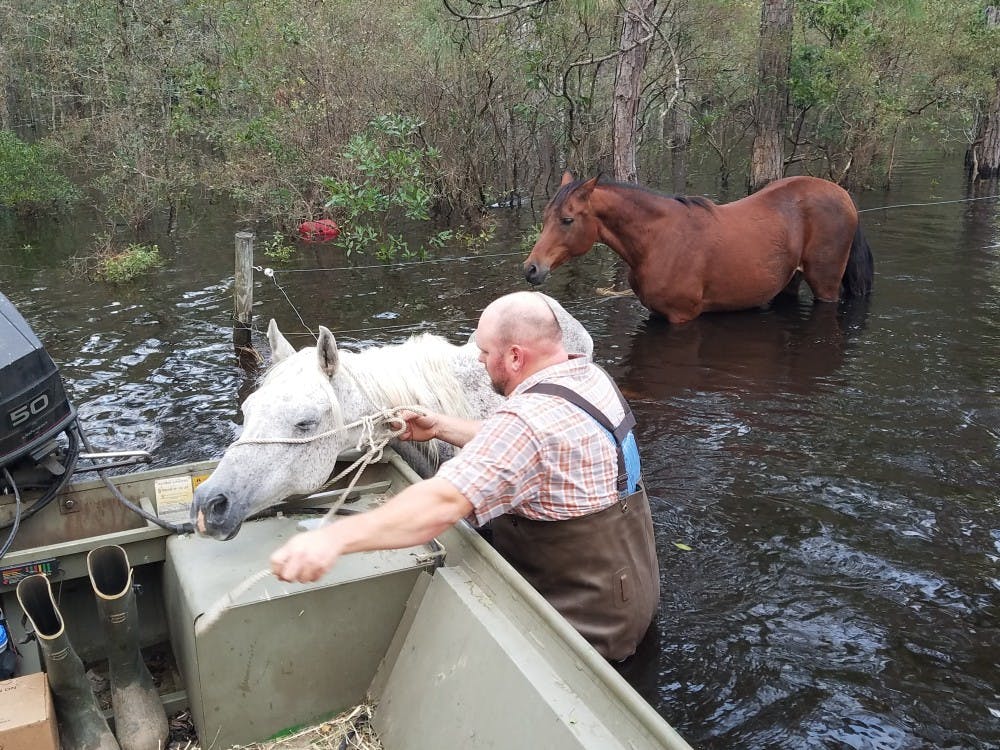Beyond flooding and road closures, Hurricane Florence stunted North Carolina's largest industry: agriculture.
Farmers lost far more in Hurricane Florence than during Hurricane Matthew, despite their preparation.
The N.C. Department of Agriculture and Consumer Services calculated losses using the percentage of crops still in the field in the 35 most highly impacted counties.
Effects varied by geographic location and crop, but agricultural losses in North Carolina totaled $1.1 billion. Row crops like tobacco and soybeans accounted for the largest portion of agricultural losses at an estimated $986.6 million.
Losses were expected to be significant because flooding affected the top six agricultural counties in the state: Sampson, Duplin, Union, Wayne, Robeson and Bladen.
Heather Overton, assistant director of public affairs at the N.C. Department of Agriculture and Consumer Services, said farmers started preparing for the storm well in advance of its landfall.
“A week before the storm hit, the governor issued an executive order that allowed trucks to work extended hours and carry heavier loads,” she said. “The goal for crops is to get what can be harvested in. For animals, it’s to move them either to slaughter or to another facility that is out of the path of the storm.”
Overton said crop producers harvested approximately 60 percent of tobacco and 75 percent of corn prior to the storm. Peanuts and sweet potatoes were not ready to harvest, so many of them stayed in the field.
“Agriculture is our state’s number one industry,” she said. “Farmers worked really hard to get these animals and crops out of the way, and a lot of areas had unanticipated flooding.”



